Boy, three, nearly died from common child viruses
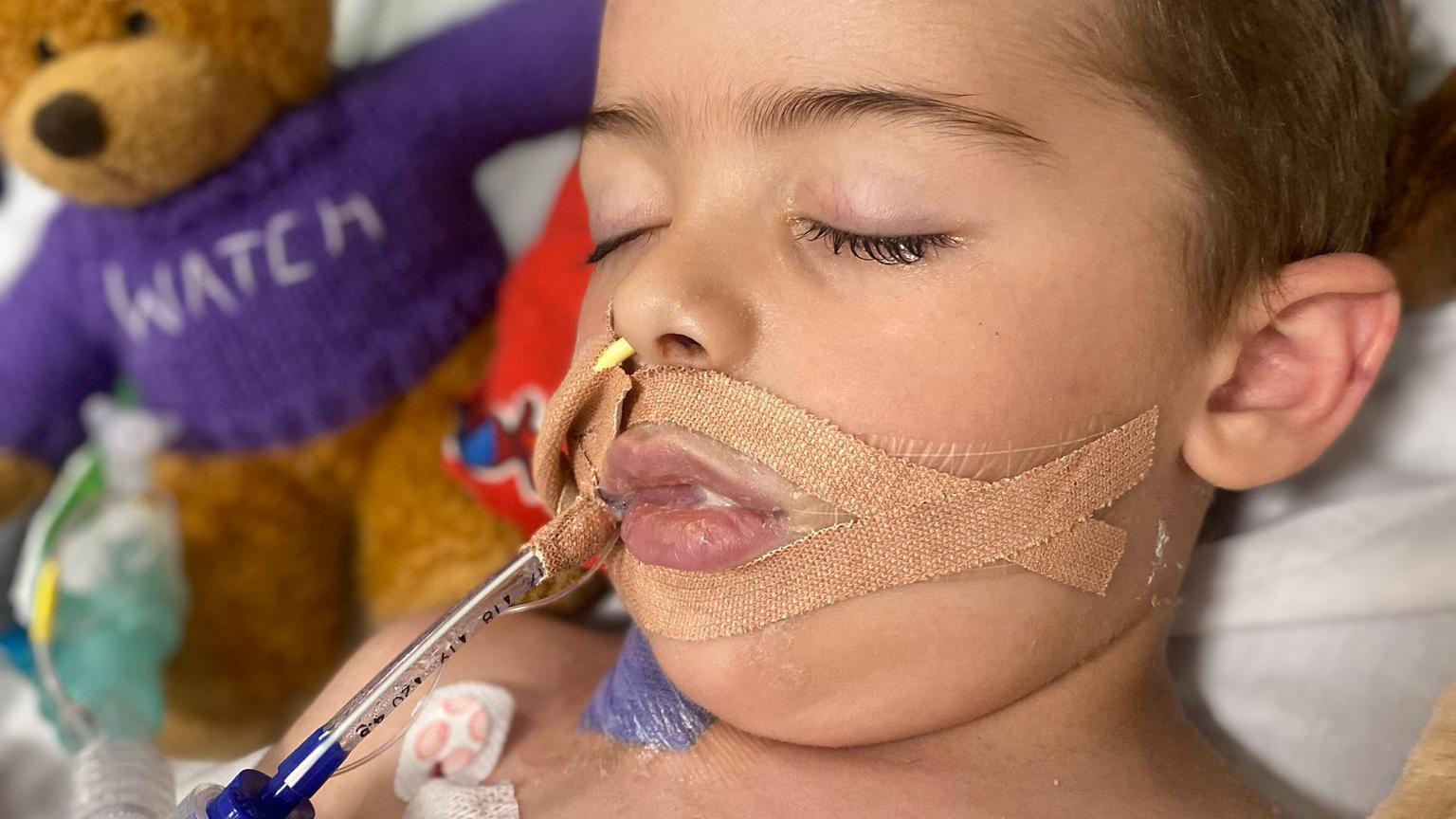
Three-year-old Freddie needed emergency heart surgery at Bristol Children's Hospital in June
- Published
A three-year-old boy was left fighting for his life after a rare combination of common childhood illnesses meant his heart started shutting down.
Vickie Julian, 37, from Brecon, Powys, first took her son to the GP on 16 June thinking it was a cold, but days later Freddie was rushed to Bristol Royal Hospital for Children for emergency heart surgery.
He was deteriorating quickly and the final option was a life-support machine which would re-oxygenate his blood and give his little heart a rest.
It worked, making Freddie the first patient in the UK to be saved by the new Extracorporeal Membrane Oxygenation (ECMO) machine, according to the hospital.
Crash boy's life saved by 20mph limit, says mum
- Published28 April 2024
Teenager spends year in hospital with meningitis
- Published26 January 2024
'Superhero' teen helping others through cancer treatment
- Published19 April 2024
Vickie noticed her son had a cold on 15 June and took him to the GP, who told her it was a virus.
Within days he stopped eating then "his arms were freezing cold, his lips were blue and his eyes were in the back of his head," she said.
Vickie and her husband Steven, 45, took their son to Prince Charles Hospital in Merthyr Tydfil where a cardiac paediatrician scanned his heart.
Doctors discovered he had an enlarged liver and "his heart was swollen and there was fluid around it - it just wasn't beating," said Vickie.
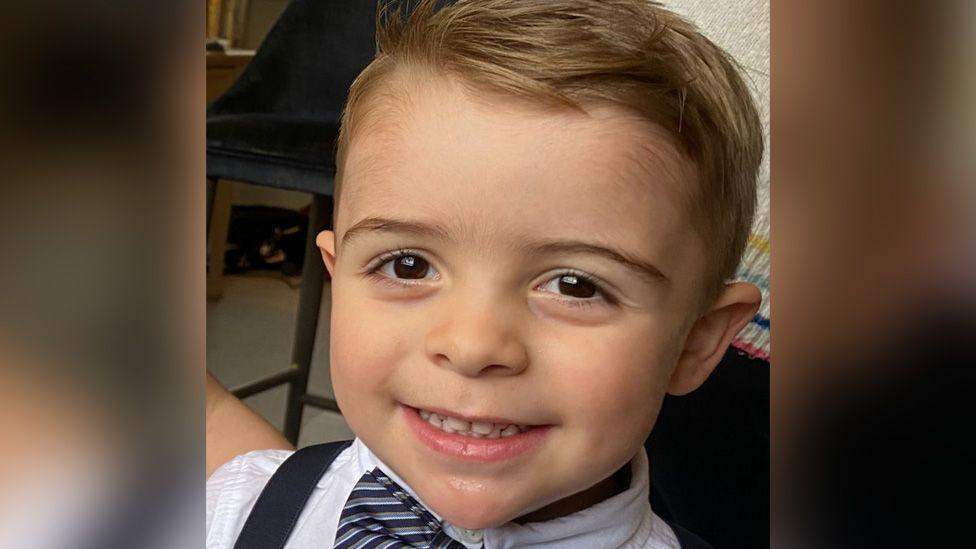
Vickie said: "We are so proud of Freddie - his fight and determination is contagious, just like his smile"
Doctors found Freddie had slapped cheek syndrome, external, pneumonia, external, enterovirus and rhinovirus - which often cause the common cold.
"Slapped cheek was the dominant virus in his blood and Freddie didn't even have red cheeks, but somehow this virus got into his body and it managed to attack his heart," said Vickie.
He was rushed to hospital in Bristol on 20 June where a temporary pacing wire was put into his heart to prevent it from stopping.
"They threw everything they could at Freddie for five days, he was on about 15 different life support infusions.
"He was he was so puffy because his kidneys weren't working, he was just filling full of fluid."
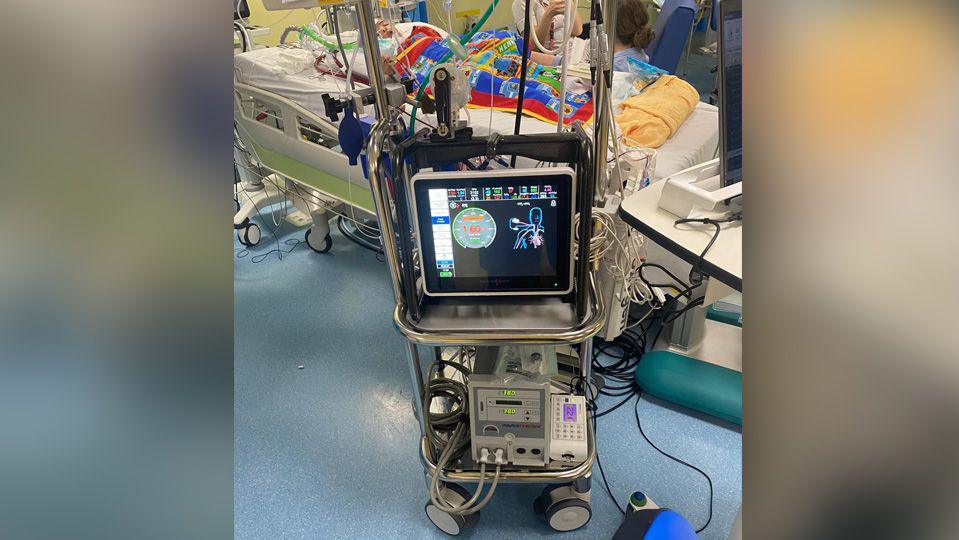
The Extracorporeal Membrane Oxygenation machine works by removing blood from the patient and re-oxygenising it before pumping it back into the body
Doctors put Freddie on a kidney filter, but he deteriorated throughout the day.
"He was so scared," his mum said.
Finally, the only option was to put him on the new ECMO machine - similar to the heart-lung bypass machine used for open heart surgery, according to Great Ormond Street Hospital, external.
The machine delivers oxygen to the blood by working as an artificial lung membrane, continuously pumping this blood into and around the body.
Bristol Royal Hospital for Children said the new ECMO machine was more portable than the version it replaced and allowed the team to monitor patients while they are attached to it.
Vickie said surgeons explained it was a "last chance life support" that was Freddie's only hope.
She said that was "the scariest thing to hear".
Boy given 'last chance' life support learns to walk
After five-and-a-half days, Freddie's heart was rested and doctors had cleared his other infections.
Vickie said her son was "so unlucky to fall so poorly with the viruses attacking his heart" and that, if it was not for the ECMO machine, "he definitely wouldn't be here".
The machine that saved her son is being named after him, she added.
"He's a determined little boy. Everyone I speak to is just like, 'he's just a force of nature'," she added.
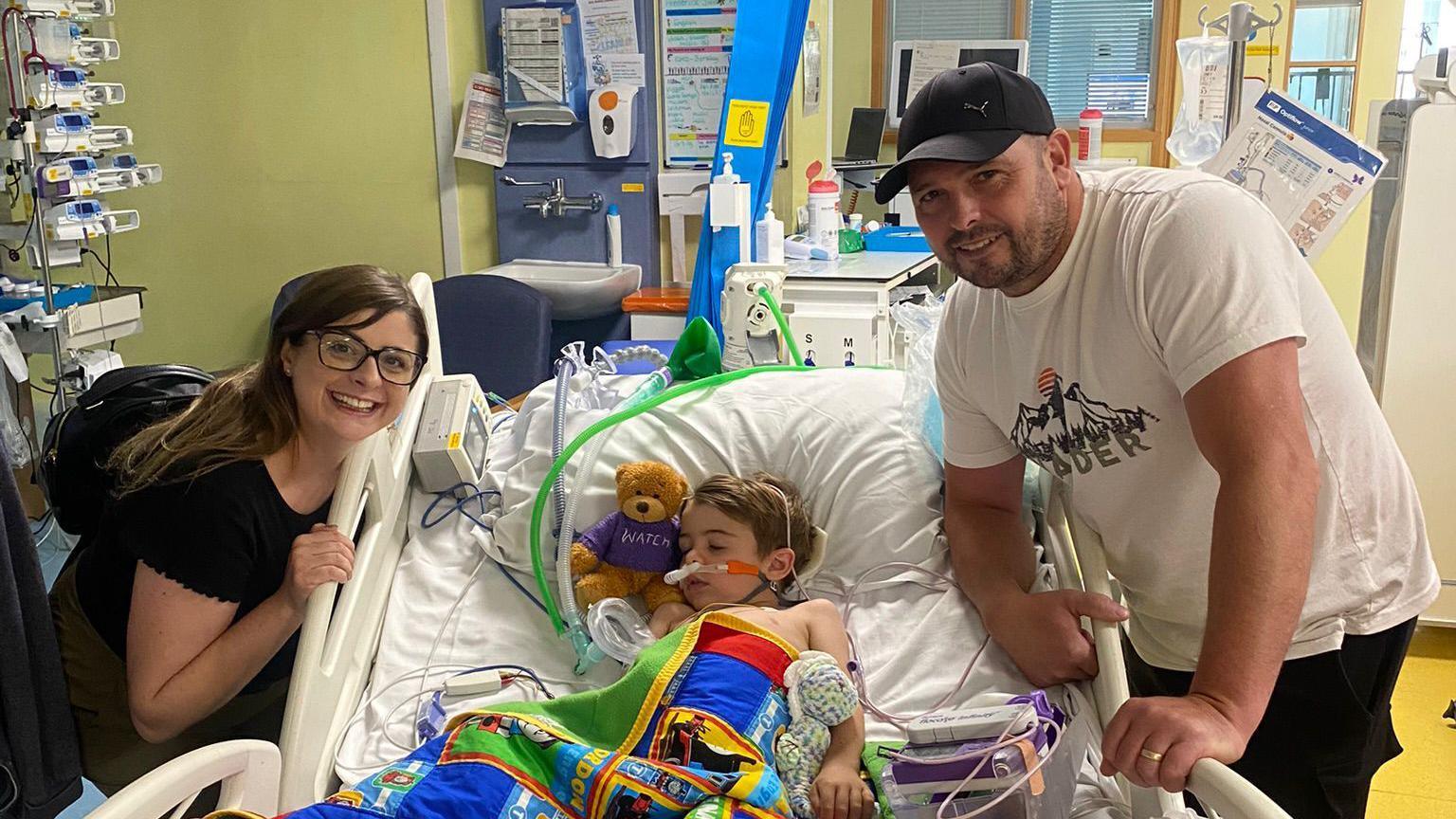
Mum Vickie and dad Steven have taken it in turns since June to sleep next to Freddie in hospital at night
Four weeks later, Freddie was transferred to a hospital in Cardiff where he began intensive neurological rehabilitation for speech, language, physio and play therapy to "try and get him back to the little boy he was before," said his mum.
"When he came here, he had no head control, he was like a newborn baby, he couldn't move his arms.
"Now he's sitting up, he's in a walker putting one foot in front of the other - and he's paying attention to choosing toys and babbling."
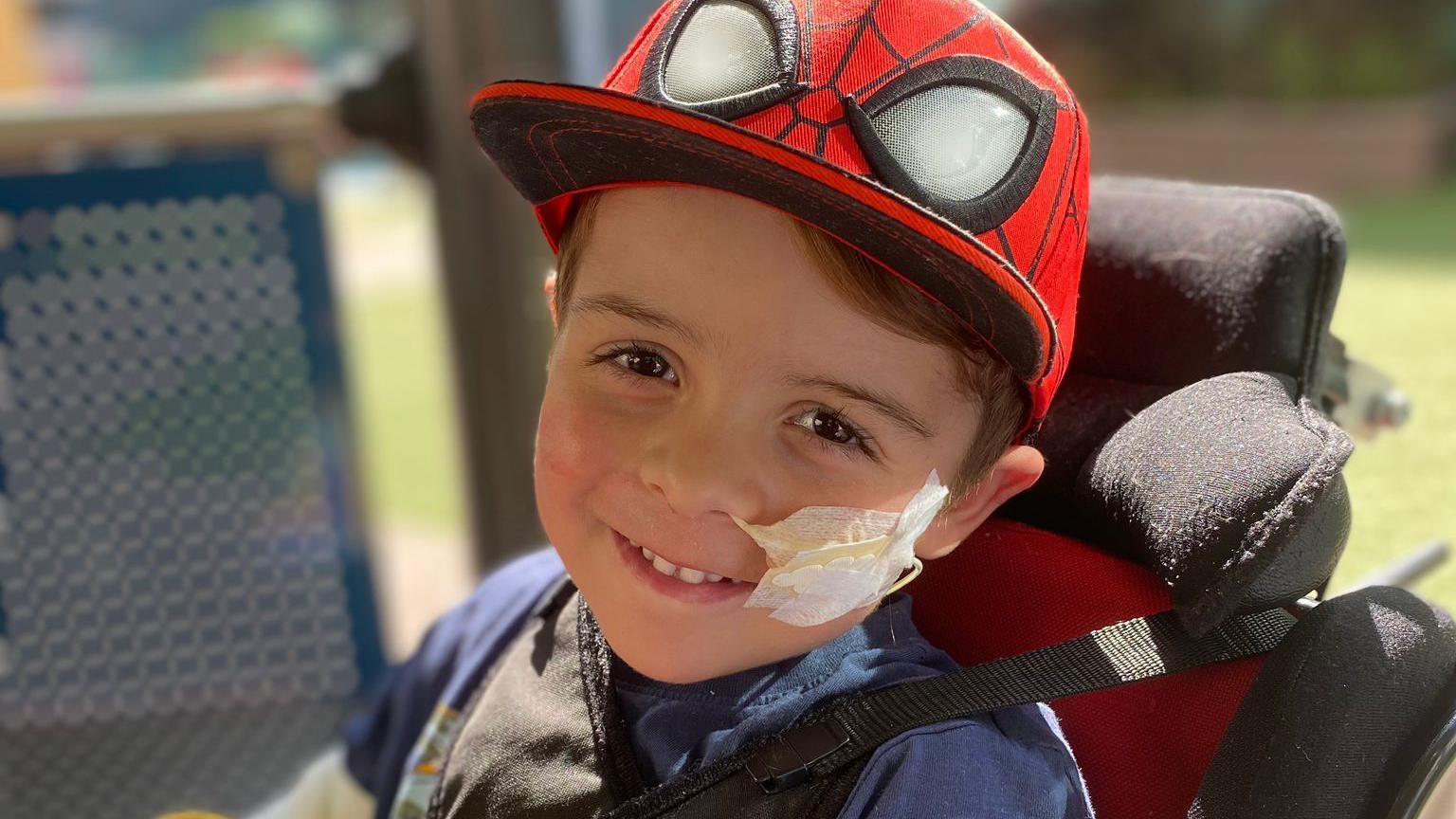
Freddie is lucky to have survived, says his mum
For a long time he refused to eat and did not like anything near his face "because of everything that he's been through".
But after weeks of rehab, Freddie began eating and drinking and loves Skips and Giant Wotsits in particular.
"They're doing everything they can here at Noah's Ark, external to bring him on as much as they can, with a view to us hopefully going home before Christmas. Which would be the best Christmas present, us all back together."
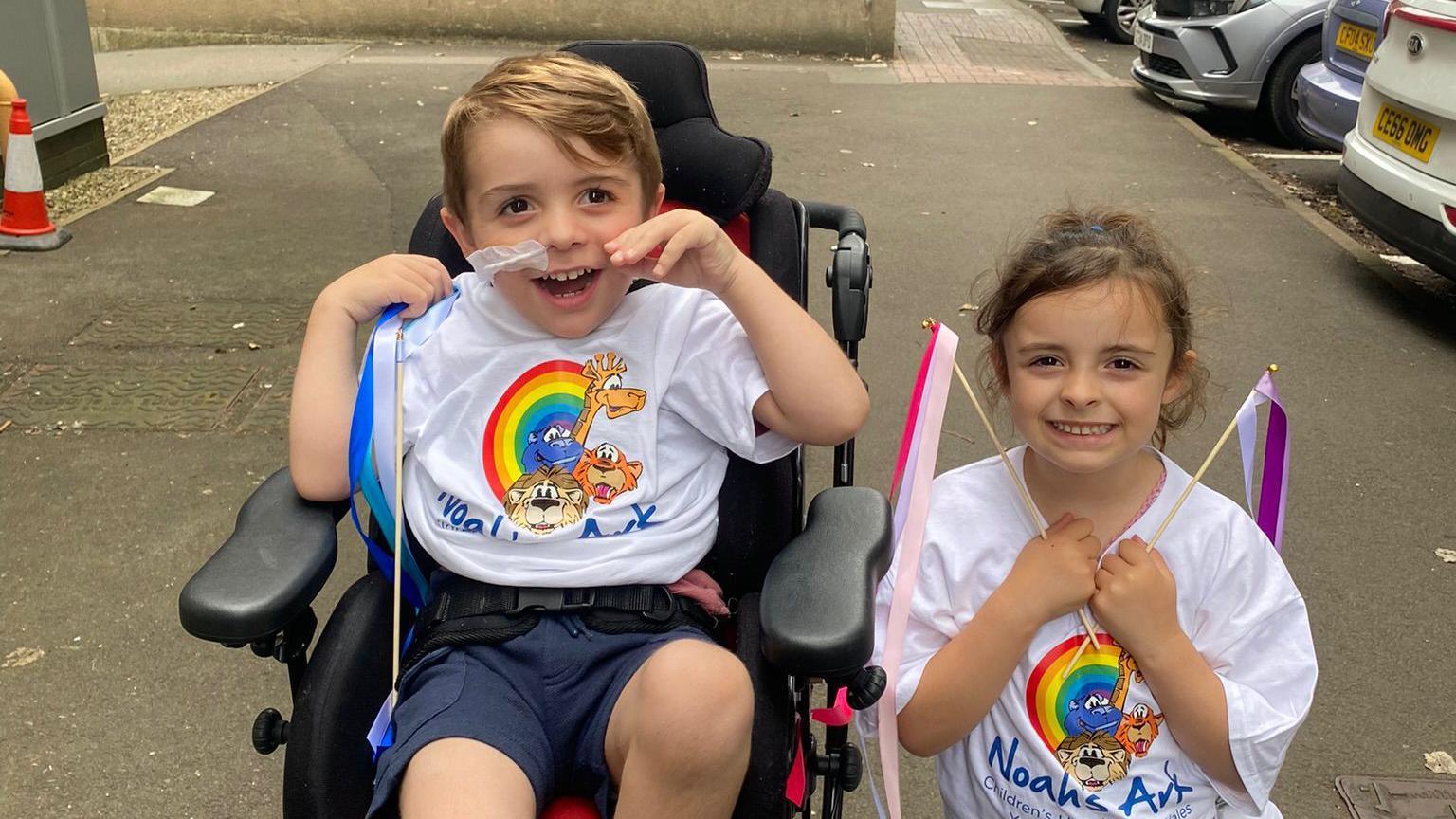
Freddie and sister Millie have been able to see each other regularly despite being so far away because of housing provided by the Ronald McDonald charity
Vickie said she wanted her family's experience to show other parents that "if something doesn't feel right, then it's really not - don't hesitate to take your children to be seen".
"Never in a million years did I think Freddie was on death's door.
"We're just lucky there's the pioneering technology which he had access to,and the right decisions being made at the right times which saved his life - and we're so grateful, we owe them everything."